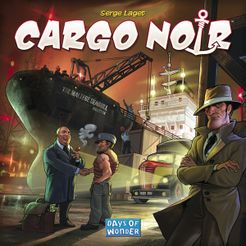Goðafoss: Waterfall of the Gods
The twelve meter high waterfall Goðafoss is an imposing sight. "You need to cross...this" is food for at least a half hour of players flailing about. But there's more to the 'waterfall of the gods'.Dig this sweet legend from the information board at the site:
"History tells us that in the year 1000, Þorgeir, Lawspeaker of the Althing [1] was entrusted with the momentous task of deciding whether Icelanders should accept the Christian faith. When his decision was formally accepted, he went home and threw his statues of the pagan gods into the waterfall."
[1] Great no nonsense title. The Althing was the Icelandic parliament. I imagine this huge barbarian rolling up to sort out crap that the politicians won't touch, and flat out refusing to be called something weak like prime minister.
Þorgeir was a follower or priest of the old gods, according to Wikipedia-Which-Is-Truth. He decides that to solve rising religious disputes, come morning there's a new god in town, heads home, and sends Thor and Odin and the rest of his Viking gods into the beyond. Balls of steel, especially for someone named after Thor's own lightning. Did he trust in the christian god to protect him? Or did he know something we don't?
Twelve divine waterfalls
- Waters of forgetfulness. Anything you throw in will be forgotten by any living thing as long as it remains at the bottom of the falls.
- Swept into history. What goes down the waterfall is forever seen as a quaint relic of former days. Interesting, but not of any relevance to the present.
- Washed of sin. The waters cleanse any act in the eyes of the gods - even denouncing them. Popular spot for murders, but beware the angry spirits who come out under the light of the new moon. The gods may forgive, but the dead don't.
- Dilution. Objects thrown into the waterfall have their power washed away. Good place to wreck a cursed item. Just don't go in with spells memorized - unless you don't mind losing them forever.
- Elemental static. The strong link to the plane of water disrupts divine senses. Gods, angels and demons (because what is the difference?) cannot make out what happens there. Great place to meet for clandestine deals with the Other Side.
- Soul sink. The waterfall destroys away the soul of anything falling into it. A way to end a recurring undead (which is nothing but a stubborn soul puppeteering dumb matter) or an angel/demon. Also a great way to make anyone surviving the trip into a soulless sociopath.
- Chrysalis. Falling down the falls frees you to make the next evolutionary step and drift off into the void as a creature of pure energy, unconcerned with mortal affairs. Of course your body still gets smashed on the rocks.
- Nihilism. All came from the endless dark sea, and to the sea it will return. Being submerged under the waterfall reminds you that everything in between is meaningless. Best to ignore it all and wait for oblivion.
- Elemental baptism. Throwing a precious sacrifice into the waters blesses you with a powerful ward against magic.
- Life. Anything broken by the water becomes part of its chaotic hivemind, washed to the ocean.
- Binding. The waters imprison anything as long as they keep running. Damming the river will stir up seriously pissed-off critters dumped into the falls in ages past.
- Fuck all. Waters actually do nothing. Reroll (ignoring this result) to get the prevailing legend. Gods are paying close attention to shenanigans happening here and will visit disproportionate retribution at a time of their choosing.
Bonus waterfall!
Forty-four meter high Dettifoss, of Prometheus fame, is a few hours' drive east of Goðafoss. It is scary and intimidating. You can walk right up to the river and the top of the falls without any fence getting in the way - thunder filling your ears, spray in your face, bits of mutating Engineer getting friendly with your boots. (I exaggerate. Take the eastern gravel road 864 instead of the paved western road 862 to the falls. Not only can you get as close as you want to the water instead of staring down across a canyon, you find that the spray blows right to the observation platform on the other side. You're on your own vis-a-vis mutating goop.)Dettifoss bears the title of most powerful waterfall in Europe: not the highest or widest, but in terms of water flow and falling height, it does involve the most energy per second. Erosion of the underlying rock makes the fall move up-river at a pace of half a meter every year.
Wouldn't it be great if the waters uncovered a long-hidden underground lair? Now the players have a choice - go in with the water pounding down and beat other explorers, or wait until the waters move back and it's safer.
(I'm pretty sure I've seen this concept either in a book or on a blog, with a huge system of waterfalls slowly uncovering a City of the Ancients. Can't for the life of me remember any details.)




